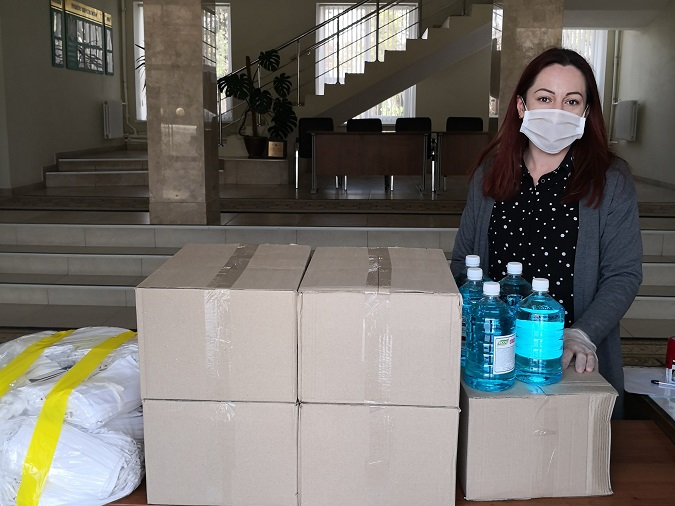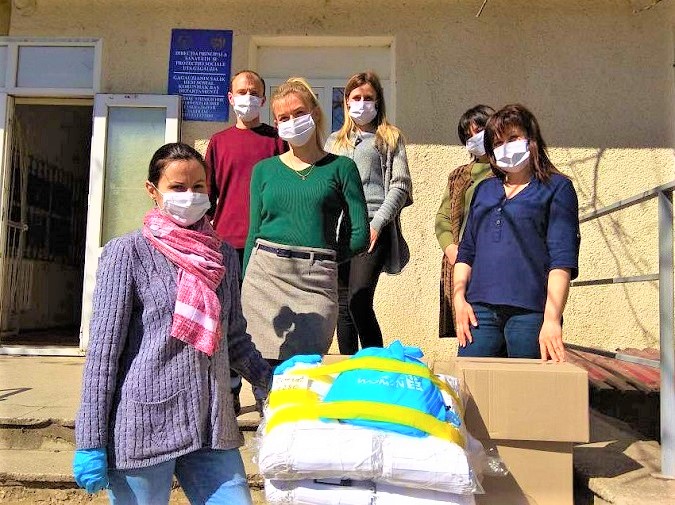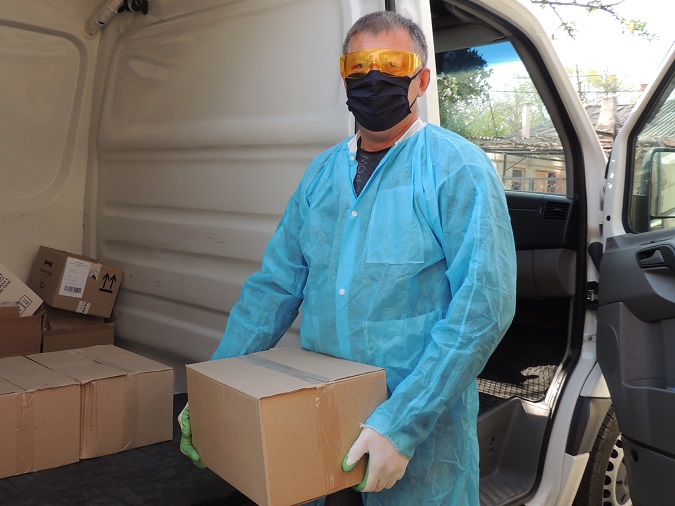UN Women Moldova and Sweden provide personal protection equipment for more than 3,000 social workers across the country
To help alleviate growing supply shortages as Moldova also fights the COVID-19 crisis, UN Women and Sweden joined forces to deliver locally produced masks and disinfectant to 36 territorial structures of social assistance across the country. This contribution, valued at 23,500 USD, complements the Ministry of Health, Labor and Social Protection’s efforts aimed at keeping Moldova’s frontline social workers and their clients safe as they continue to provide critical services to vulnerable people, including those suffering domestic violence. A total number of 3,279 social workers will benefit from this support.Date:

Since the Republic of Moldova declared a national emergency in response to COVID-19 on 17 March, the pressure on essential services has intensified, with supplies of proper protective equipment running low. As people are told to stay home, social workers are needed more than ever, especially when it comes to supporting victims of domestic violence. The delivery of masks and disinfectant to 36 districts across the country will help them to keep going safely.
According to the National Bureau of Statistics in the Republic of Moldova, about 64 per cent of women have suffered some form of violence from their husband or partner at least once in their lives. During the quarantine needed to fight COVID-19, there is a high risk that the incidences of violence will increase. In some countries, for example, the reported cases of domestic violence have tripled.

“Through this contribution we would like to keep services available for those in urgent need but also ensure a sufficient level of protection for specialists that work in preventing and combating domestic violence,” Anna Lyberg, Ambassador of Sweden in Moldova said. “This means that workers from shelters and social workers, as well as beneficiaries can have easy and protected access.”
The response to COVID-19 is also a reminder of the essential contribution that women at all levels make, including as frontline responders, says Peterson Magoola, Representative a.i for UN Women, Moldova.
“Considering that in Moldova around 80 per cent of workers in the health and social sector are women, we are mobilizing our efforts to enable them to provide support to those who are the most affected by this outbreak, including victims of gender-based violence,” the Representative said. “For us, it is critical that survivors of violence and other vulnerable and most at-risk persons continue to access social services.”

At the beginning of April 2020, UN Women with the support of Sweden also contributed to the efforts of the Ministry of Health, Labor and Social Protection and the National Coalition, Life without Violence. The support aimed to ensure that the necessary products for women beneficiaries of 15 public associations, public institutions and placement centers from different regions of the country were available.
“In the complicated situation for the Republic of Moldova, but also for the whole world, any support and involvement in helping the population is welcome. Thank you for your solidarity and responsibility, " said Viorica Dumbraveanu, Minister of Health, Labor and Social Protection of the Republic of Moldova.
The first case of COVID-19 was registered in the Republic of Moldova on 7 March. According to official data on 16 April, 2,049 cases have been confirmed. More than half of the affected people are women.
The UN system in Moldova supports the national response to the pandemic through coordinated activities, which aim to protect people, especially the most vulnerable, and increase the capacities of the national system in various fields.